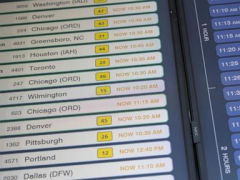Family courts in England and Wales should give more weight to allegations of domestic abuse than to claims of “parental alienation”, according to new guidance.
When parents have separated, and are arguing over their children, they turn to the family court. In these private law children cases claim and counter-claim are common.
One parent, usually the mother, may accuse the other parent of abuse. The father may counter that she has manipulated the children against him – termed parental alienation.
How the court responds can have lifelong consequences for the family, as the judge has to decide whom the children live with, and what time they spend with the other parent.
Wednesday’s report from the advisory Family Justice Council says “despite the lack of research evidence, and international condemnation, reference is still made to the discredited concept of ‘parental alienation syndrome’.”
This is the idea that children show a recognisable pattern of behaviours if they have been manipulated by one parent against the other.
The guidance describes this as a “harmful pseudo science”.
It says there are genuine cases where alienating behaviours “impact” a child’s relationship with the other parent, but they are “relatively rare”.
According to research, over half of all private law cases involving children include allegations of domestic abuse.
It is not known how many include parental alienation, though judges have observed a rise in their own cases.
The guidance says “allegations of domestic abuse and ‘parental alienation’ cannot be equated” – pointing out that domestic abuse
Read More





